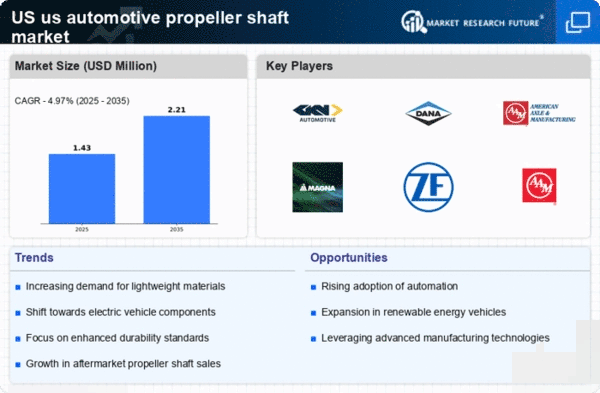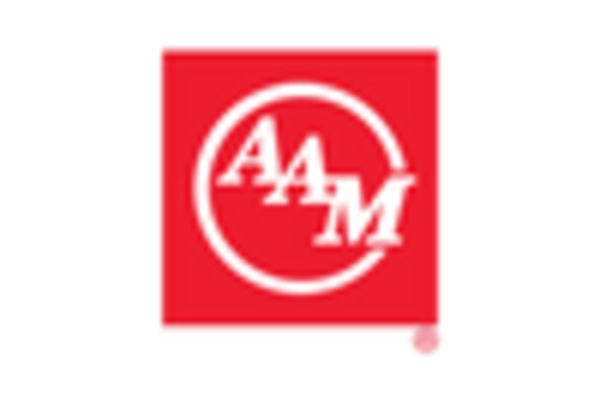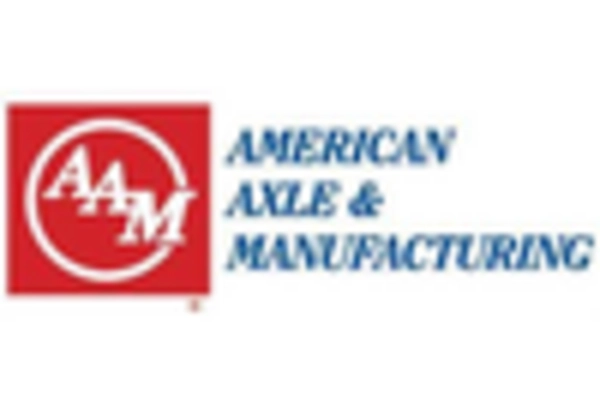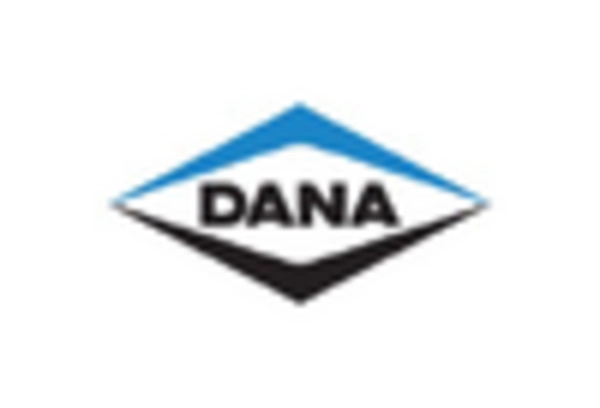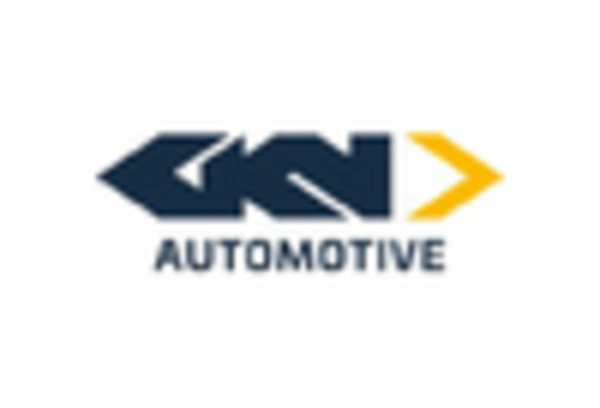Growing Demand for Fuel Efficiency
The US Automotive Propeller Shaft Market is experiencing a notable increase in demand for fuel-efficient vehicles. As consumers become more environmentally conscious, automakers are compelled to enhance fuel efficiency across their fleets. This trend is reflected in the rising sales of compact and hybrid vehicles, which often utilize advanced propeller shaft designs to reduce weight and improve performance. According to the US Department of Energy, fuel-efficient vehicles can reduce greenhouse gas emissions significantly, prompting manufacturers to innovate in propeller shaft technology. The integration of lightweight materials and optimized designs in the US Automotive Propeller Shaft Market is likely to continue as regulatory pressures and consumer preferences evolve.
Expansion of Electric Vehicle Market
The expansion of the electric vehicle (EV) market is poised to impact the US Automotive Propeller Shaft Market significantly. As more consumers opt for electric vehicles, the demand for components that support electric drivetrains is increasing. While traditional propeller shafts may be less relevant in fully electric vehicles, there is a growing need for specialized shafts in hybrid models and performance EVs that utilize multi-motor configurations. The US government has set ambitious targets for EV adoption, which may lead to increased investments in the automotive supply chain, including propeller shaft manufacturing. This shift presents both challenges and opportunities for the US Automotive Propeller Shaft Market as it adapts to the evolving landscape of vehicle propulsion.
Regulatory Compliance and Emission Standards
The US Automotive Propeller Shaft Market is significantly influenced by stringent regulatory compliance and emission standards. The Environmental Protection Agency (EPA) has established regulations that require automakers to reduce emissions from their vehicles. This has led to an increased focus on developing lightweight and efficient propeller shafts that contribute to overall vehicle performance. Manufacturers are investing in research and development to meet these standards, which often necessitates the adoption of innovative materials and designs. As the regulatory landscape continues to evolve, the US Automotive Propeller Shaft Market is expected to adapt, fostering growth in the sector as companies strive to comply with these requirements.
Rising Popularity of All-Wheel Drive Vehicles
The rising popularity of all-wheel drive (AWD) vehicles is a significant driver for the US Automotive Propeller Shaft Market. AWD systems require robust and efficient propeller shafts to transmit power effectively to all wheels, enhancing vehicle traction and stability. As consumer preferences shift towards SUVs and crossover vehicles, which often feature AWD capabilities, the demand for specialized propeller shafts is likely to increase. This trend is supported by data from the US automotive market, indicating a steady rise in AWD vehicle sales. Consequently, manufacturers are focusing on developing advanced propeller shaft solutions tailored to meet the specific needs of AWD systems, thereby driving growth in the market.
Technological Advancements in Propeller Shaft Design
Technological advancements are playing a crucial role in shaping the US Automotive Propeller Shaft Market. Innovations such as computer-aided design (CAD) and finite element analysis (FEA) enable manufacturers to create more efficient and durable propeller shafts. These technologies allow for precise modeling and testing, leading to improved performance and reduced weight. The US automotive sector has seen a shift towards using advanced materials, such as carbon fiber and aluminum, which enhance the strength-to-weight ratio of propeller shafts. As a result, the market is likely to witness a surge in demand for these high-performance components, driven by the need for enhanced vehicle dynamics and efficiency.


